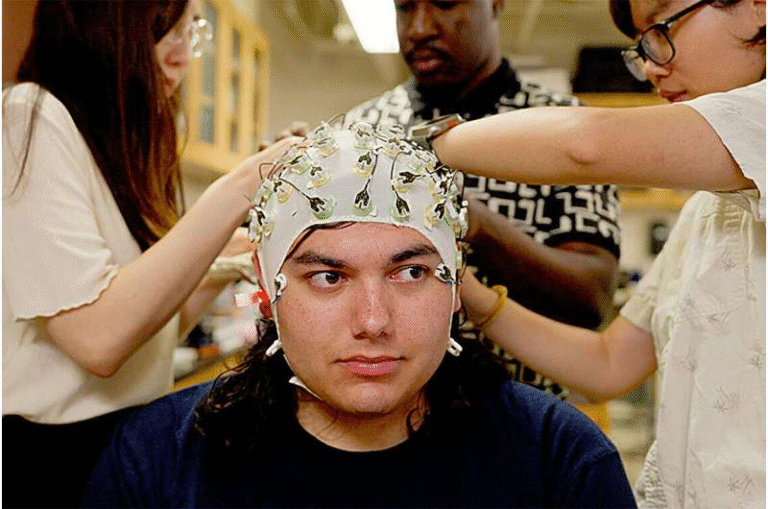Can Mental Health Education Cross Cultures? Researchers Launch Global Study to Find Out
A new international research initiative is setting out to answer a vital question: can mental health education truly work across cultures? A team led by experts at the University of Nottingham and King’s College London is launching the first-ever global Delphi study to understand how Recovery Colleges (RCs)—a unique, educational approach to mental health support—can be adapted for different cultural contexts around the world.
What Are Recovery Colleges (RCs)?
Recovery Colleges were first developed in England in 2009, built on the idea that recovery from mental health challenges is not just about treatment—it’s also about education, empowerment, and community. Unlike traditional clinical programs, RCs offer educational courses designed to help individuals build confidence, develop life skills, and reconnect socially.
These courses are co-produced and co-delivered by both professionals and people with lived experience of mental health difficulties. Topics include understanding mental health, developing personal recovery plans, and learning new coping or life skills.
Today, RCs operate in more than 28 countries across five continents. Despite this global reach, most of the research and frameworks that guide RCs were developed in Western contexts, particularly the UK. This brings up a critical question: how well does the RC model fit in cultures where community harmony, collective identity, or emotional expression differ from Western norms?
Why This Study Matters
The new study, published in PLOS ONE and led by Dr. Yasu Kotera, an Associate Professor of Cross-Cultural Mental Health at the University of Nottingham, aims to explore this very issue.
The project is part of the broader RECOLLECT 2 program, the largest global research initiative on Recovery Colleges. Co-led by Professor Mike Slade (University of Nottingham) and Professor Claire Henderson (King’s College London), RECOLLECT 2 focuses on developing new tools, evidence, and guidance for improving mental health education worldwide.
While RCs have shown success in promoting personal growth and recovery, there’s limited understanding of how these principles translate across diverse cultural landscapes. For example, ideas of independence and self-direction—central to many RCs—may not resonate in societies that value interdependence or group cohesion. This study seeks to pinpoint which parts of the RC approach are universally applicable and which require cultural adaptation.
The Aim and Method: A Global Delphi Study
The researchers will use a Delphi study, a structured method of gathering insights from international experts through multiple rounds of surveys. This process helps reach a global consensus on complex issues—ideal for something as nuanced as mental health and culture.
Over 100 experts from more than 30 countries will participate, each with at least three years of experience with Recovery Colleges. Participants will include RC practitioners, educators, students, and researchers, all contributing their understanding of what makes RCs effective in their cultural setting.
These experts will rate various aspects of the RC model based on two main criteria:
- Importance (how essential each element is to the RC approach)
- Cultural difficulty (how challenging it is to apply in different cultural contexts)
The researchers will also collect qualitative feedback, asking participants to suggest ways to make the model more culturally sensitive.
The study will follow a six-step Delphi process developed by Belton and colleagues. Data will be gathered through online forms, analyzed statistically, and supported by content analysis of written feedback. The framework of Hofstede’s cultural dimensions—which explores cultural factors like power distance, collectivism, and uncertainty avoidance—will guide how responses are interpreted.
Tools at the Core: RCM and RFM
This research builds on two major frameworks already used within the RECOLLECT program:
- The RECOLLECT Change Model (RCM), which outlines how RCs bring about personal and social transformation.
- The RECOLLECT Fidelity Measure (RFM), which assesses whether a college maintains fidelity to the RC model.
The study will test how these frameworks hold up across different cultural environments.
The RFM, for instance, includes both non-modifiable and modifiable elements. Non-modifiable items—such as co-production, adult learning, community focus, and commitment to recovery—are seen as the core DNA of RCs. Modifiable elements, however, such as the location of the college, who can attend, and how learning goals are set, may need to shift depending on local culture and values.
By identifying which features are flexible and which are foundational, the researchers hope to help practitioners worldwide adapt RCs without losing their integrity.
A Truly Global Effort
This isn’t a small-scale project. The RECOLLECT International Research Consortium (RIRC) already has collaborators in 31 countries across six continents, including the UK, Japan, Canada, Australia, Brazil, Nigeria, India, and several European nations.
The Delphi panel will draw on this network, ensuring that diverse cultural viewpoints are represented. The research team also includes experts from Osaka University (Japan), Azerbaijan University, and the RECOLLECT Lived Experience Advisory Panel, ensuring that the process remains inclusive and balanced between academic and lived perspectives.
All data and materials are openly available on the Open Science Framework (OSF), making the process transparent and accessible for researchers and mental health practitioners globally.
How the Results Will Be Used
When completed, the findings will inform culturally sensitive adaptations to the RCM and RFM. The goal is to make Recovery Colleges more inclusive, relevant, and effective for people across diverse societies.
In practical terms, the results could guide:
- Policymakers, to design culturally appropriate mental health education programs.
- Practitioners, to adapt RC practices for their local communities.
- Researchers, to refine global frameworks for co-produced mental health support.
Ultimately, the study aims to strike a balance between fidelity and flexibility—ensuring that while RCs retain their essential values of equality and empowerment, they also respect local cultural norms and ways of healing.
The Bigger Picture: Why Cultural Adaptation Matters in Mental Health
Mental health support doesn’t happen in a vacuum. Cultural context deeply shapes how people understand, express, and recover from mental distress.
For example:
- In Western cultures, mental health recovery often emphasizes individual autonomy, personal goals, and self-advocacy.
- In Eastern or collectivist societies, recovery may focus more on family harmony, community integration, or spiritual balance.
This means that even the best-designed educational programs may fail if they ignore local beliefs, communication styles, or social expectations. The RECOLLECT team’s global study is an important step toward bridging this gap—creating a shared foundation for mental health education that’s truly global yet locally meaningful.
Looking Ahead
As the world becomes more interconnected, mental health professionals are increasingly realizing that one size doesn’t fit all. This global Delphi study will be the first systematic attempt to map out the universal and culture-specific elements of Recovery Colleges.
The results could lead to better training materials, more inclusive policy recommendations, and a stronger understanding of how education-based mental health support can serve people from all walks of life.
It’s a bold step toward ensuring that mental health recovery and education are accessible, respectful, and effective—wherever you are in the world.
Research Paper: Enhancing cross-cultural applicability in recovery colleges: A global Delphi study protocol (PLOS ONE, 2025)






